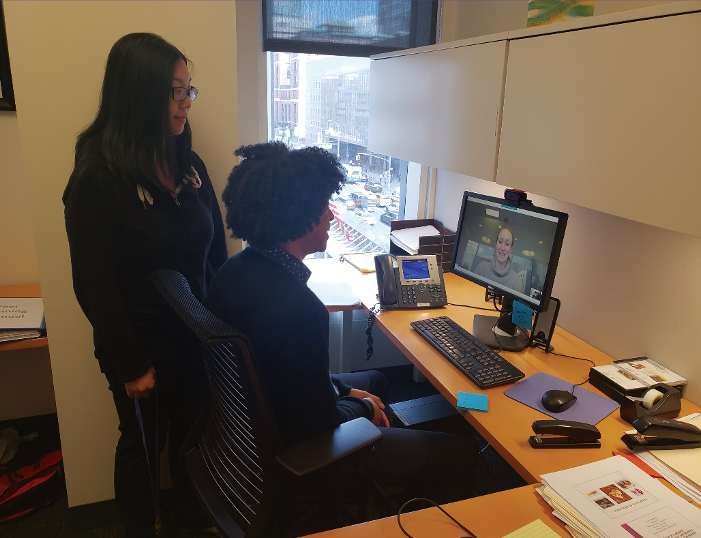Prof. Ann-Margaret Navarra receives NIH grant to expand research on improving HIV medication adherence among diverse young people

October 09, 2020
Ann-Margaret Navarra, PhD, MS, assistant professor at NYU Meyers, has been awarded a grant from the National Institute of Nursing Research (NINR), part of the National Institutes of Health (NIH). The four year, $1.6 million project (R01NR019535-01) will enable Navarra to build upon her earlier research using a peer-led intervention to help HIV-positive Black and Hispanic adolescents and young adults—the population with the highest rates of new HIV infections—adhere to their medication.
While antiretroviral therapy effectively treats HIV and prevents new, sexually transmitted cases, nearly 40 percent of HIV-positive Black and Hispanic young people do not adhere to their antiretroviral treatments, putting them at high risk for sexual transmission.
Improving adherence behavior is critical but complex, shaped by many psychosocial and contextual factors, including stigma, substance use/psychological distress, and barriers to engaging with the health system, said Navarra.
To address this public health need, Navarra developed a peer-led, technology-enabled HIV medication adherence intervention called ACCESS (Adherence Connection for Counseling, Education, and Support) through a previous NINR grant (K23NR015970). Trained peer health coaches—young adults who are also HIV positive—delivered a five-session intervention using video conferencing. ACCESS was feasible and acceptable; participants who completed the intervention better adhered to their medication (antiretroviral treatment doses increased by 32 percent) and HIV viral load was reduced by 48 percent after a year.
Through her new NINR R01 grant, Navarra will conduct a randomized controlled trial of ACCESS II, an expanded version of the intervention. The study will include 120 HIV-positive Black and Hispanic adolescents and young adults (18-29 years old). Those receiving the intervention will participate in eight weekly videoconferencing sessions with a trained peer health coach, while the other group will connect to online education about medication adherence, without the peer coach.
Navarra will study the effect of the intervention on medication adherence and HIV viral load, as well as evaluate other factors such as participants’ HIV knowledge, self-efficacy, stigma, psychological distress, social support, and substance use. She also seeks to better understand which of these factors are associated with medication adherence and viral load and characterize adherence phenotypes. “Understanding these phenotypes is essential to the development of more tailored adherence interventions,” said Navarra.
As principal investigator of ACCESS II, Navarra is joined by a stellar investigative team, including NYU Meyers’ Lloyd Goldsamt, PhD, and Jason Fletcher, PhD; UMass Amherst Dean Allison Vorderstrasse, DNSc, APRN, FAAN; and Michael Rosenberg, MD, PhD, associate professor of pediatrics at Albert Einstein College of Medicine and an infectious disease specialist at Jacobi Hospital, who will serve as a collaborator/HIV medical content expert.